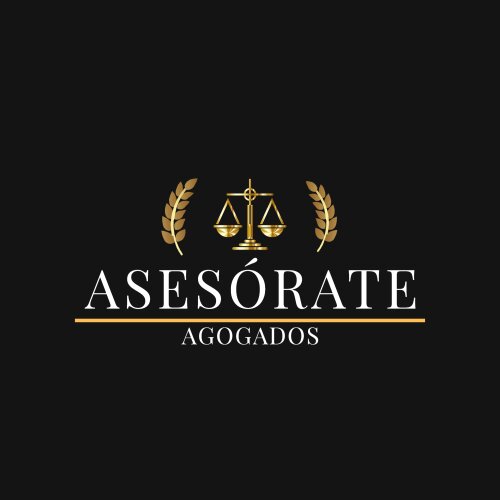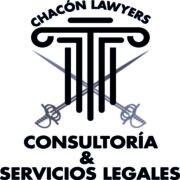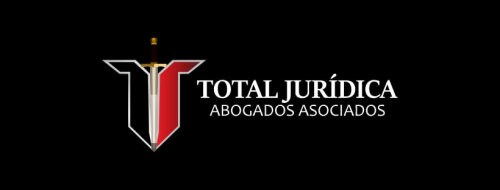Best Civil Rights Lawyers in Bogota
Share your needs with us, get contacted by law firms.
Free. Takes 2 min.
List of the best lawyers in Bogota, Colombia
About Civil Rights Law in Bogota, Colombia
Civil Rights in Bogota, Colombia, are enshrined in both the Colombian Constitution and various national laws. These rights protect individuals from discrimination, uphold freedoms such as speech and assembly, and guarantee equal treatment before the law. Civil Rights law in Bogota covers a range of issues including, but not limited to, freedom from unlawful detention, protection against discrimination based on race, gender, religion, sexual orientation, and the right to participate in public life. Due to its status as the capital city, Bogota often sets precedents in how these rights are interpreted and enforced.
Why You May Need a Lawyer
There are numerous situations where consulting a Civil Rights lawyer in Bogota could be crucial. Common examples include:
- Experiencing discrimination in work, education, or public services
- Facing police misconduct, unlawful arrests, or violations of due process
- Participating in social protests and encountering legal issues related to freedom of assembly
- Dealing with government actions that may infringe on privacy or property rights
- Challenging acts such as censorship or limits on freedom of expression
- Confronting obstacles in accessing healthcare, education, or housing because of personal characteristics
Civil Rights lawyers not only advise on how to protect your rights but also represent you before administrative bodies and courts if your rights are violated.
Local Laws Overview
Bogota is governed by Colombian national law as well as local regulations that must align with the national Constitution. Key legal frameworks relevant to Civil Rights include:
- Political Constitution of Colombia 1991: The supreme law, which guarantees rights like equality, due process, religious freedom, political participation, and protection from arbitrary state action.
- Law 1482 of 2011 (Anti-discrimination Law): Addresses acts of discrimination based on race, ethnicity, religion, nationality, political or philosophical opinion, sex, or sexual orientation.
- Legal mechanisms: Individuals have access to tools such as the tutela (a special legal action for the protection of fundamental rights), habeas corpus (to challenge wrongful detention), and others.
- Protections for vulnerable groups: Specific laws safeguard the rights of women, children, persons with disabilities, ethnic minorities, and the LGBTIQ+ community.
- Public participation laws: Guarantee the right to peaceful protest, access to public information, and civic engagement.
Understanding how these laws work in practice can be complex, and local ordinances may modify how certain rights are exercised in Bogota.
Frequently Asked Questions
What rights are protected under Civil Rights law in Bogota?
Civil Rights law protects personal freedoms and equality, including non-discrimination, freedom of speech, religious liberty, the right to assemble or protest, due process, and access to basic services.
How do I file a complaint if my Civil Rights have been violated?
You can file a complaint with agencies like the Defensoría del Pueblo, the Office of the Attorney General, or go directly to a local legal authority. For urgent protection of fundamental rights, you may file a tutela action.
What is a tutela and how does it work?
A tutela is a special legal tool that allows any individual to seek immediate protection in court if they believe their fundamental rights have been violated or threatened. The process is typically fast and does not require legal representation, though having a lawyer can help.
Am I protected from discrimination based on sexual orientation or gender identity?
Yes, Colombian law, especially Law 1482 of 2011, explicitly protects against discrimination for reasons of sexual orientation or gender identity. Reports of such violations can be made to authorities.
Can I participate in protests or demonstrations in Bogota?
Yes, the Constitution protects the right to peaceful protest. However, certain legal procedures, such as notifying authorities in advance, may apply. Violence or vandalism during protests is not protected.
What should I do if the police violate my rights during an arrest?
You have the right to remain silent, to legal representation, and to be informed of the reasons for your detention. Any abuse can be challenged in court through actions like habeas corpus or a tutela. Reporting the misconduct to the Procuraduría General or Defensoría del Pueblo is also recommended.
Who provides free legal assistance for Civil Rights issues in Bogota?
Organizations like the Defensoría del Pueblo and local human rights groups offer free legal guidance. Law schools and legal clinics may also provide pro bono services.
Are there special protections for ethnic minorities in Bogota?
Yes, Colombia has affirmative laws and programs aimed at protecting the rights and culture of Indigenous peoples, Afro-Colombian communities, and other minorities. Special legal mechanisms exist for defending these rights.
How long do Civil Rights cases typically take in Bogota?
Timelines vary. Tutela actions are generally resolved within 10 days, while other cases can take longer depending on complexity and court workload. Legal advice can help expedite the process.
Can foreigners access Civil Rights protections in Bogota?
Yes, all people in Colombia, regardless of nationality or immigration status, are entitled to basic Civil Rights and legal protections.
Additional Resources
Several organizations and agencies in Bogota are dedicated to the defense and promotion of Civil Rights. These include:
- Defensoría del Pueblo (Ombudsman’s Office): Offers assistance and receives complaints related to Civil Rights violations
- Personería de Bogotá: The city’s human rights office, providing legal support and oversight
- Procuraduría General de la Nación: Supervises public officials’ conduct and protects citizen rights
- Civil society organizations: Various NGOs offer specialized support, including Colombia Diversa (LGBTQI+ rights), Dejusticia (legal advocacy), and Casa de la Mujer (women’s rights)
- Legal clinics affiliated with universities in Bogota
Next Steps
If you believe your Civil Rights have been violated or are at risk, it is important to act promptly:
- Document all incidents, including dates, locations, names, and any evidence
- Contact a lawyer specializing in Civil Rights or reach out to the Defensoría del Pueblo for initial advice
- File the appropriate legal action, such as a complaint or tutela, as advised by your legal representative
- Keep track of your case’s progress and maintain open communication with your lawyer or support organization
- Use available resources for emotional and social support, especially if the violation impacts your wellbeing
Seeking legal guidance can make a significant difference in protecting your rights and accessing justice. If you are unsure where to start, reaching out to a local human rights office or legal aid center in Bogota is a good first step.
Lawzana helps you find the best lawyers and law firms in Bogota through a curated and pre-screened list of qualified legal professionals. Our platform offers rankings and detailed profiles of attorneys and law firms, allowing you to compare based on practice areas, including Civil Rights, experience, and client feedback.
Each profile includes a description of the firm's areas of practice, client reviews, team members and partners, year of establishment, spoken languages, office locations, contact information, social media presence, and any published articles or resources. Most firms on our platform speak English and are experienced in both local and international legal matters.
Get a quote from top-rated law firms in Bogota, Colombia — quickly, securely, and without unnecessary hassle.
Disclaimer:
The information provided on this page is for general informational purposes only and does not constitute legal advice. While we strive to ensure the accuracy and relevance of the content, legal information may change over time, and interpretations of the law can vary. You should always consult with a qualified legal professional for advice specific to your situation.
We disclaim all liability for actions taken or not taken based on the content of this page. If you believe any information is incorrect or outdated, please contact us, and we will review and update it where appropriate.
















